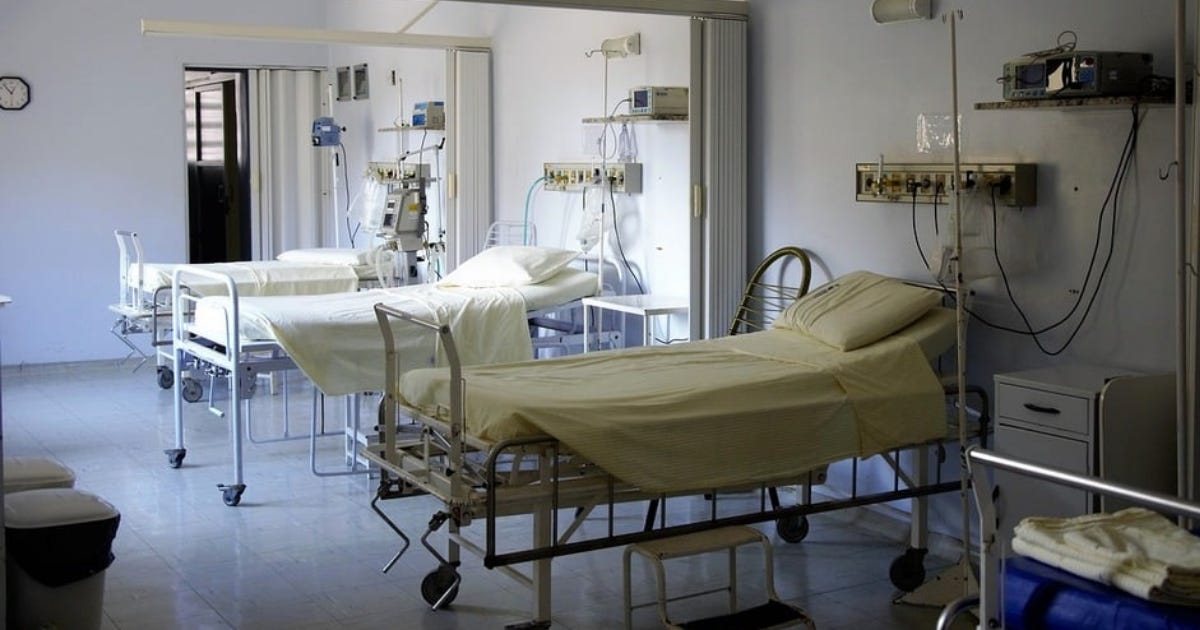OP-ED: Waitlist deaths grow again but it doesn’t have to be this way
Dom Lucyk writes, "More Canadians are dying at the hands of a broken health care system. It’s hardly a unique problem to any given region, or even the province."
By Dom Lucyk
More Canadians are dying at the hands of a broken health care system. It’s hardly a unique problem to any given region, or even the province… but it’s been going on for far too long, and it needs to be fixed.
Early signs from one region in the west show the trend doesn’t seem to be shifting. New data obtained by SecondStreet.org shows that nearly 1,600 patients died on a waitlist in B.C.’s Interior Health region in 2024-25. That’s a six-year high, up from 767 in 2019-20. Shockingly, this data is not disclosed publicly by Interior Health (or any of BC’s five health regions).
SecondStreet.org files Freedom of Information (FOI) requests yearly with health regions and provincial governments to uncover this crucial data, which governments may or may not respond to.
Through this method, we’ve been able to uncover over 76,000 patient deaths on a waitlist across Canada since we started counting in 2019. Considering many health regions in Canada don’t track the problem, the true number is likely double.
This is clearly a catastrophic failure on the part of the health region. Crucially, patients are paying for this system that keeps failing them.
Critics may leap to the government's defense with a cry: “So what if someone dies waiting for a knee replacement, or cataract surgery?” This isn’t uncommon. Interior Health defended the results by saying patients may have been waiting for elective surgeries. So what? Would you want to spend the final years of your life unable to walk or see because the government has left you on a waiting list? Quality of life matters, too.
In the midst of this tragedy, there is hope. It is possible to run a universal health care system where patients aren’t forced to wait months or years for life-changing or life-saving surgery and diagnostics.
In fact, it’s been done dozens of times and continues to work well in many other parts of the world with better universal health care systems.
Europe is always a great place to look. The Commonwealth Fund’s yearly report comparing health care systems across the world usually places Canada among the bottom of the pack in many areas, including having a regular family doctor (9th of 10), seeing a doctor the same or next day when patients needed care (10th of 10), and patients who reported waiting a week or less to see a specialist (7th of 10).
So why are these systems outperforming Canada?
One reason is that they don’t lock patients into the public system. For example, both Sweden and France have universal public systems that allow patients a choice to pay for private care if they so desire. This helps take pressure off of the public system, and helps everyone get care more quickly. In Canada, governments have a series of barriers that prevent patients from paying surgery and other services in their own province. No other developed country does this.
But not only do these countries allow alternatives, they also have a more collaborative way of looking at health care delivery. Simply put, countries like France will gladly partner with a non-profit or for-profit clinic if they can deliver quality care in a cost-effective manner to patients in the public system. In many cases, these partnerships are more efficient, such as St. Gorans - a Swedish hospital where they’re able to deliver care 30 per cent cheaper per procedure than government-run hospitals.
These are a couple examples of health reform ideas that could make the system more efficient in B.C. and the rest of Canada.
And yet, sadly, the B.C. government seems to be more focused on injecting more money into the system rather than implementing real health reform.
Well, the system has already received ‘more money.’ Spending across Canada has gone up past the rate of inflation for more than 30 years, and yet outcomes have only gotten worse.
It’s time that B.C. and the rest of the country take a long, hard look at what’s done in countries that have better universal health care systems. If something isn’t done, and quickly, the deaths will likely continue to pile up.
Dom Lucyk is the Communications Director withSecondStreet.org, a Canadian think tank.



This is neither a crime, nor neglect nor incompetence. It is population reduction which began in earnest with the forcibly (by coercion) injected experimental gene 'therapy - the mRNA 'jab' which has killed and crippled millions globally and will kill and cripple hundreds of millions in the decade to come. Bill Gates' stated, desired number was 200 million. But they have revised their plans upwards due to the great success of their project, particularly in Canada.